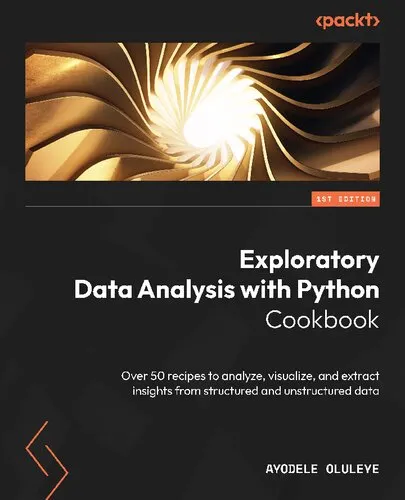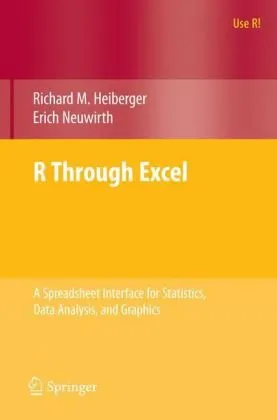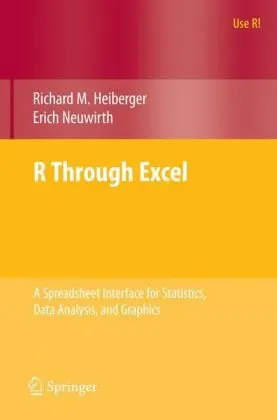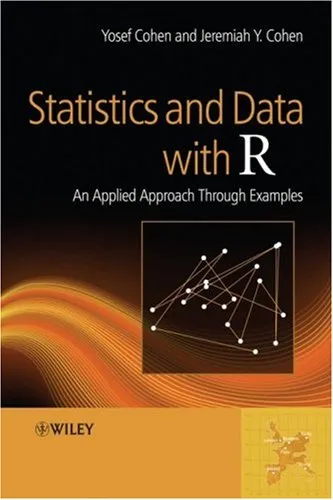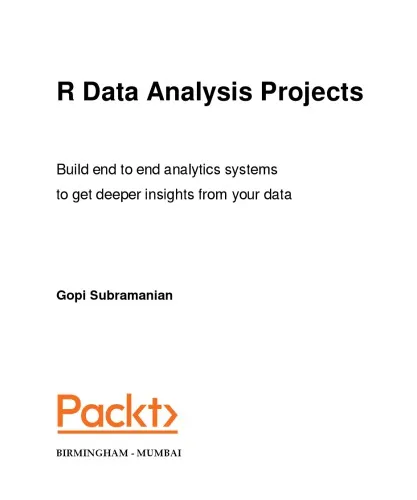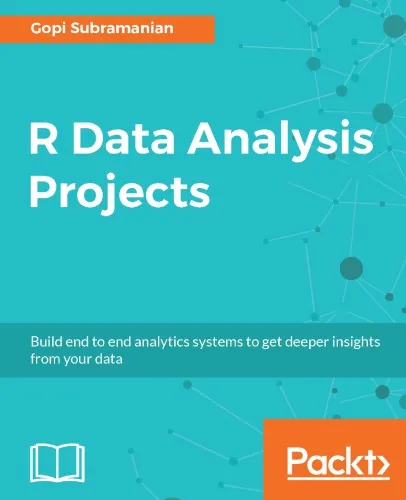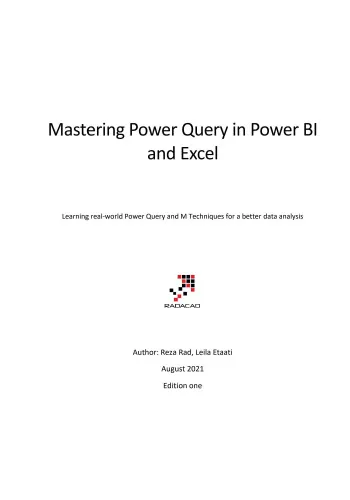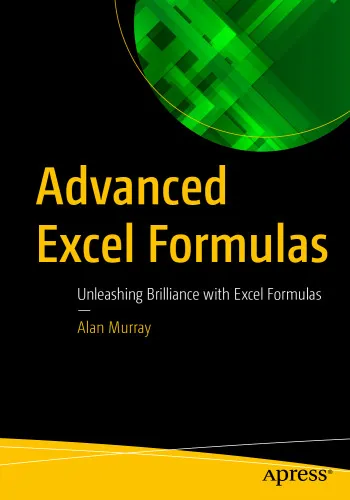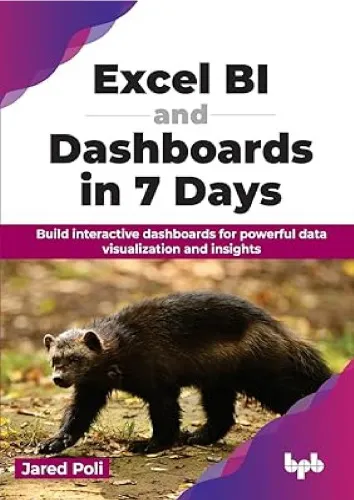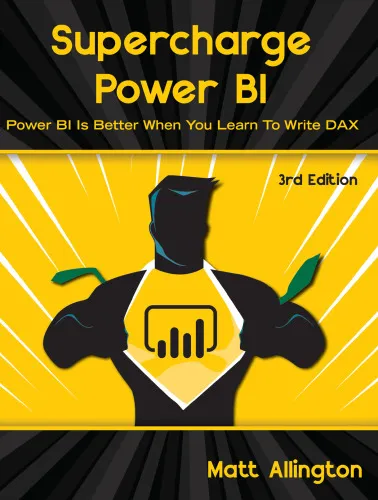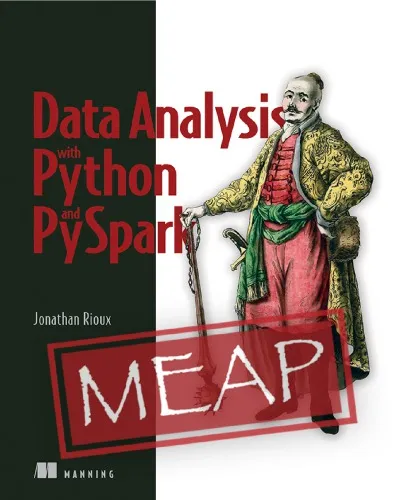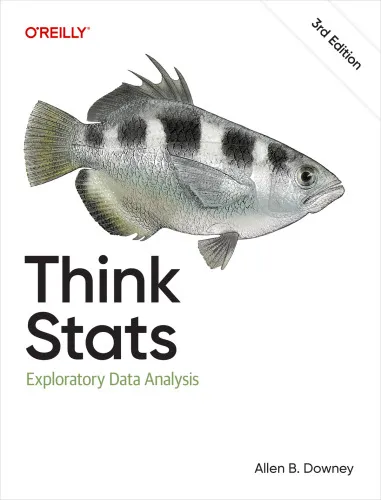Exploratory Data Analysis with Python Cookbook: Over 50 recipes to analyze, visualize, and extract insights from structured and unstructured data
4.3
Reviews from our users

You Can Ask your questions from this book's AI after Login
Each download or ask from book AI costs 2 points. To earn more free points, please visit the Points Guide Page and complete some valuable actions.Related Refrences:
Analytical Summary
The book Exploratory Data Analysis with Python Cookbook: Over 50 recipes to analyze, visualize, and extract insights from structured and unstructured data serves as an essential reference for both aspiring and experienced data professionals. Written with precision and clarity, this resource offers systematic, recipe-based approaches to uncover the hidden narratives within datasets – from traditional tabular structures to complex, unconventional formats.
In a world increasingly driven by data, practical skills in exploratory data analysis have become indispensable. By guiding readers through the strategic use of Python’s vast ecosystem—pandas, matplotlib, seaborn, and more—the book delivers hands-on techniques that bridge theory with actionable insights. Each of its 50+ expertly crafted recipes is designed to empower readers to handle challenges ranging from preprocessing and cleansing data to advanced trend detection and pattern recognition.
Whether working in academia, industry, or governmental research, readers gain a detailed roadmap for exploring both structured and unstructured datasets. Structured data, such as relational database tables, and unstructured sources including text, images, and logs, are given equal attention. The book’s modular structure enables selective reading, making it equally valuable as a daily desk reference or a deep-study manual.
Key Takeaways
Readers can expect to close the book equipped with a toolkit of repeatable, scalable methods for discovering meaningful insights rapidly and effectively.
Key benefits include:
– A solid foundation in core Python libraries for data analysis and visualization
– Techniques for cleaning, transforming, and preparing datasets for deeper investigation
– Methods for handling both quantitative and qualitative data sources
– Strategies to articulate findings via charts, plots, dashboards, and narrative commentaries
– Practical guidance for integrating EDA workflows into broader data science or machine learning pipelines
Memorable Quotes
Data is a precious thing and will last longer than the systems themselves. Unknown
Without exploratory data analysis, models are blind guesses at best. Unknown
Why This Book Matters
At a time when the sheer volume and diversity of data sources can overwhelm decision-making processes, this book offers clarity, methodology, and confidence.
Python remains the most popular programming language for data science, and exploratory data analysis is the linchpin between raw data and informed decisions. The Exploratory Data Analysis with Python Cookbook: Over 50 recipes to analyze, visualize, and extract insights from structured and unstructured data consolidates best practices sourced from years of real-world applications. Rather than offering abstract theories, it provides concrete guidance that is immediately deployable for projects in academia, business intelligence, and machine learning prototyping.
Information unavailable on specific publication accolades or year; no reliable public source currently confirms these details. Nonetheless, the book’s relevance is evident in its structured approach to solving common analytical problems.
Inspiring Conclusion
For any professional, researcher, or academic looking to harness the transformative potential of Python for data exploration, the Exploratory Data Analysis with Python Cookbook: Over 50 recipes to analyze, visualize, and extract insights from structured and unstructured data is a must-have companion.
Its practical orientation ensures that readers move from theory to impact quickly, making informed decisions backed by transparent data processes. Readers are invited to explore each recipe, adapt them to their unique contexts, and share learned insights with peers and colleagues. In doing so, the techniques presented will not only refine your own workflows but also contribute to the broader practice of clear, ethical, and effective data analysis.
The next step is clear: dive into its pages, experiment with its recipes, discuss your findings, and let data tell its truest story.
Free Direct Download
You Can Download this book after Login
Accessing books through legal platforms and public libraries not only supports the rights of authors and publishers but also contributes to the sustainability of reading culture. Before downloading, please take a moment to consider these options.
Find this book on other platforms:
WorldCat helps you find books in libraries worldwide.
See ratings, reviews, and discussions on Goodreads.
Find and buy rare or used books on AbeBooks.
1718
بازدید4.3
امتیاز0
نظر98%
رضایتReviews:
4.3
Based on 0 users review
Questions & Answers
Ask questions about this book or help others by answering
No questions yet. Be the first to ask!
